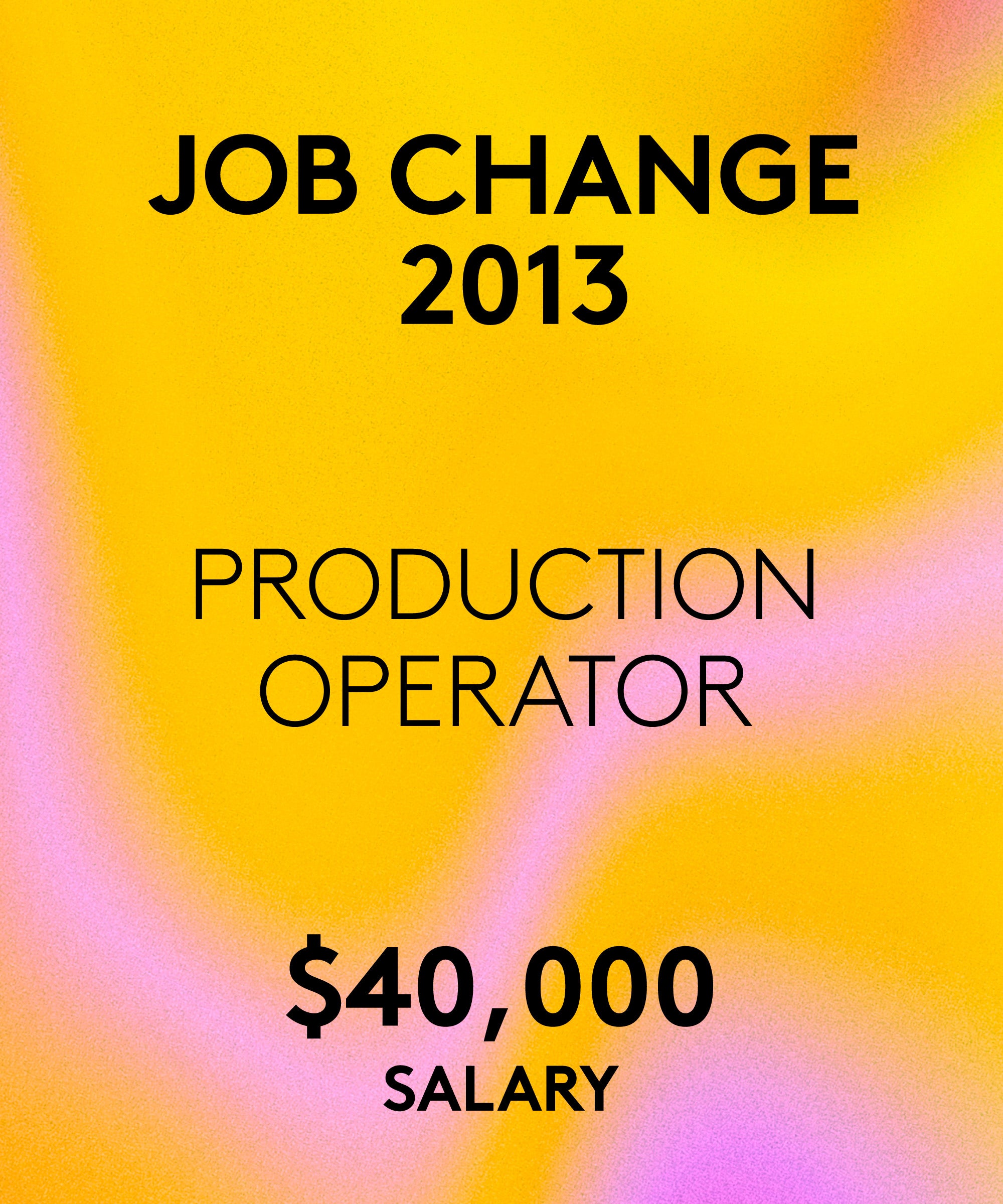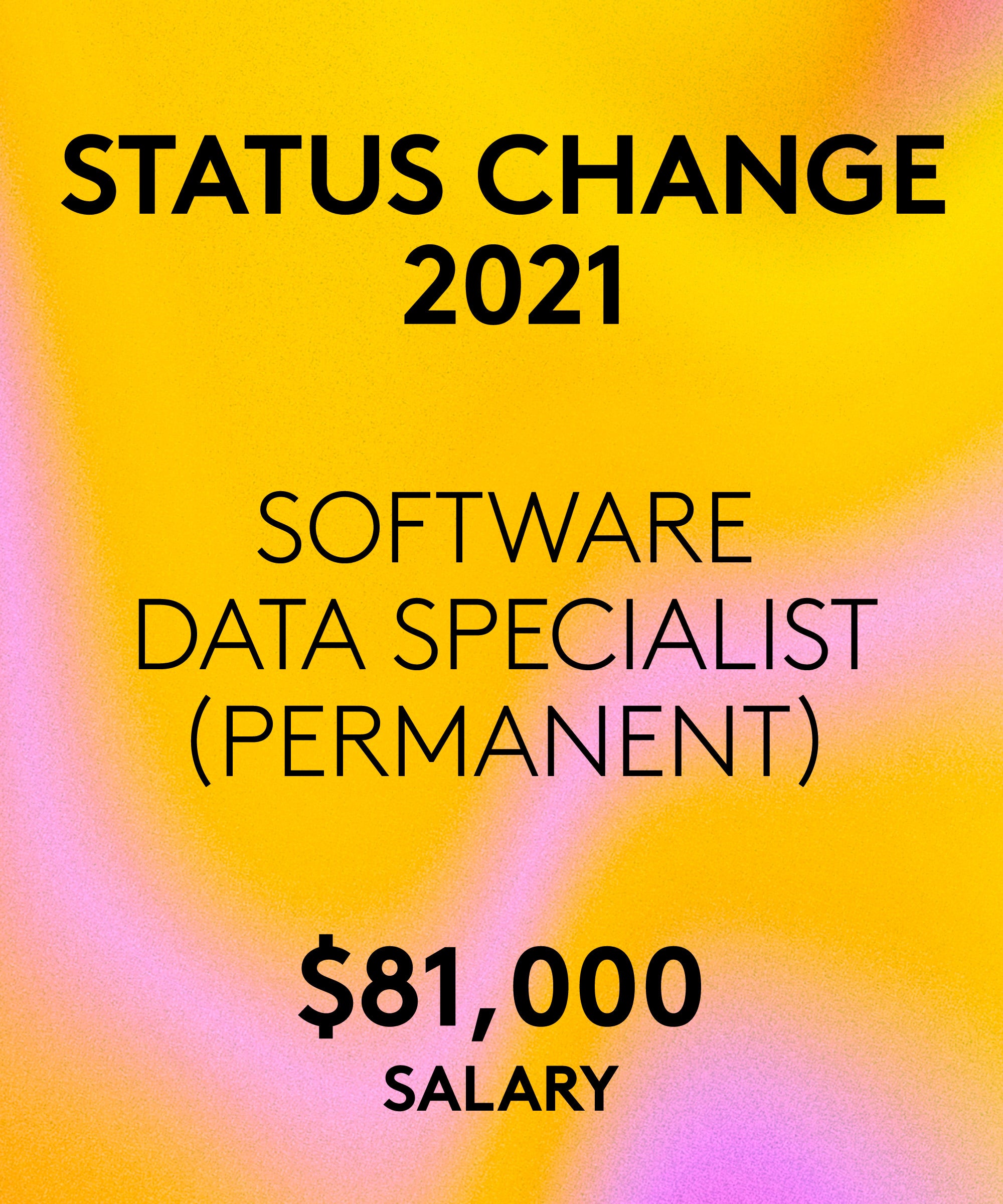In our series Salary Stories, women with long-term career experience open up about the most intimate details of their jobs: compensation. It’s an honest look at how real people navigate the complicated world of negotiating, raises, promotions and job loss, with the hope it will give young people more insight into how to advocate for themselves — and maybe take a few risks along the way.
Been in the workforce for at least five years and interested in contributing your salary story? Submit your information here.
Age: 35
Location: Philadelphia
Current industry and job title: End-user pharmaceuticals, software data specialist
Current salary: $166,600
Number of years employed since school or university: 13
Starting salary: $400/week
Biggest salary jump: From $81,000 to $166,600 — this is my most recent job switch.
Biggest salary drop: From $89,440 to $81,000 due to changing from a temp to a full-time employee position at the same workplace.
Biggest negotiation regret: Not negotiating harder when switching from a temp to a full-time employee (the salary drop above). I stuck my neck out a little because the first offer was $76,000, which I flatly refused, but even after accepting $81,000, I think I should have negotiated non-salary perks (such as PTO and the sign-on bonus) more.
Best salary advice: Don’t be afraid to take risks on temp and contract work. Don’t feel guilty, even for an instant, when switching jobs. And remember, two-week notices are optional.

This was very tiring work, running production lines and operating heavy machinery, with a swing shift schedule. But it had perks, too, including a tuition reimbursement program through which I got my MBA — an accelerated online program that I finished as soon as possible, while doing this job. Plus, this was a unionized environment, which I felt lucky to be a part of.

I did not negotiate pay — I was so starry-eyed at the $20,000 bump and being able to have a day schedule that the thought of negotiating never crossed my mind (maybe it should have) and I didn’t want to overplay my hand.

This move to the quality assurance department was a quintessential desk job and the biggest workplace culture shock I have ever experienced. I had to communicate with people at the company’s corporate site regarding the salability and supply of product that the plant made. It was an extremely toxic and high-stress environment, and my manager abdicated almost all responsibility for the department. I was easily the most miserable at this job.
However, it also had its perks. The plant was in a constant state of upheaval so there was an abundance of overtime available, for both this position (which paid ($34.62/hour) and for my prior two jobs at this location (I was still allowed to take shifts for those, too — hence the variable salary range during the five years I spent in this role). Initially, I was motivated to work this overtime to build general savings and also funds for a house down payment.
Towards the end of my time here in 2020, I was working close to 60 hours a week to hoard money during the pandemic, because my partner and I were concerned that one or both of us could lose our job.

The commute was half as long as for my prior job, and the hourly pay of $43 meant I would make more money working 40 hours/week than I made working 60 hours/week.
I was paid through a temp agency under a six-month contract, but the position was advertised as temp-to-hire. I deliberated a lot about taking this job because there were so many factors at play: It was the height of the pandemic, and my contract was not guaranteed to extend or result in full-time work. But my old position was absolutely not compatible with life — it was giving me actual heart palpitations — so I accepted.

I did negotiate their initial offer of $76,000 up to $81,000, and I was proud of myself for that. But I do regret a little here: Only after I had signed all the paperwork did I realize that other employees got a sign-on bonus and were able to negotiate their PTO up — neither of which I thought to do. I phased into working 100% remotely for the last year of my employment here.

This was around the time my previous job had announced a three-days-a-week return-to-office policy, which I was very, very salty about. So the prospect of staying 100% remote, while more than doubling my earnings and doing essentially the same type of work, was absolutely astonishing to me.
I tried to negotiate staying remote at my old position but this was shot down so I was 0% sorry about quitting without notice and only coming onsite to hand in my laptop.
I know this puts me in another somewhat precarious contract position, but I’m a little immune to the risk now; hopefully I don’t end up eating those words. Even if my contract isn’t renewed, I’ll be able to save up two years’ worth of living expenses while maintaining my investment rate. I paid off my student debt and my mortgage is low, so I think it was a worthwhile move to make. Plus, finally breaking into the actual end-user pharma industry — instead of the pharma-adjacent ingredients and components spaces — is cool, too, I guess, since it apparently boosts my market rate.
As far as my next career move, I hope to get this current contract extended out as many times as possible, since the work is sustainable for me and I’m happy with the rate. I am also considering approaching the company about taking me on as a part-time employee at maybe $85/hour for 20 hours a week. In a couple of years, I would love some extra work-life balance to pursue hobbies and simply work less. I know I’d be comfortable at that earning rate, and I’d be able to afford marketplace insurance, so it’s worth a shot!
Like what you see? How about some more R29 goodness, right here?
I Got My Dream Job, Despite My Imposter Syndrome
I Used This Strategy To Get My Biggest Salary Jump















